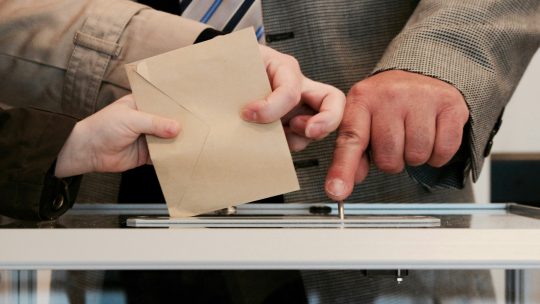…once again:
http://www.lewrockwell.com/paul/paul480.html
…One of the primary causes for the length and severity of the Great Depression in this country was the federal government’s attempts at keeping prices artificially elevated. A typical example of getting causation backward, the federal government assumed that falling prices caused the depression, whereas in reality the falling prices were the result of the economic depression, and were necessary to bring the economy back into equilibrium. In its attempt to keep agricultural prices high, the federal government began to pay farmers to destroy their crops, while unemployed people lined up at soup kitchens around the country.
A similar situation exists today, where many mortgage-backed securities and other similar assets are horribly overvalued. The market response would be to allow these assets to be sold on the market at whatever price they would bring. This would result in a shakeout of bad debt and a shorter, sharper correction than would otherwise occur. Unfortunately, the political will to allow banks to take the responsibility for their lending actions is at times lacking…
…We must the face the fact that our country is dead broke, and not just that, we are facing over $10 trillion in debt, and tens of trillions more in unfunded liabilities. This $700 billion bailout will only increase that debt, and increase the amount of money we pay merely to service the interest on that debt. The end result of this is higher taxes on our children and grandchildren, and the full-scale destruction of the dollar.
The only viable solution to this financial crisis is to keep the government from intervening any further. The Federal Reserve has already loaned hundreds of billions of dollars through its numerous lending facilities, and the Congress has passed legislation authorizing further hundreds of billions of dollars to bail out Fannie and Freddie, yet each successive crisis event seems to be advertised as larger and more severe than the previous one. It is time that this Congress put its foot down, reject the administration’s proposal, and allow the bust to work itself out so that our economic hangover is not as severe as it might otherwise be.
…One of the perverse effects of this bailout proposal is that the worst-performing firms, and those who interjected themselves most deeply into mortgage-backed securities, credit default swaps, and special investment vehicles will be those who benefit the most from this bailout. As with the bailout of airlines in the aftermath of 9/11, those businesses who were the least efficient, least productive, and least concerned with serving consumers are those who will be rewarded for their mismanagement with a government handout, rather than the failure of their company that is proper to the market. This creates a dangerous moral hazard, as the precedent of bailing out reckless lending will lead to even more reckless lending and irresponsible behavior on the part of financial firms in the future.
This bailout is a slipshod proposal, slapped together haphazardly and forced on an unwilling Congress with the threat that not passing it will lead to the collapse of the financial system. Some of the proposed alternatives are no better, for instance those which propose a government equity share in bailed-out companies. That we have come to a point where outright purchases of private sector companies is not only proposed but accepted by many who claim to be defenders of free markets bodes ill for the future of American society.
As with many other government proposals, the opportunity cost of this bailout goes unmentioned. $700 billion tied up in illiquid assets is $700 billion that is not put to productive use. That amount of money in the private sector could be used to research new technologies, start small businesses that create thousands of jobs, or upgrade vital infrastructure. Instead, that money will be siphoned off into unproductive assets which may burden the government for years to come. The great French economist Frédéric Bastiat is famous for explaining the difference between what is seen and what is unseen. In this case the bailout’s proponents see the alleged benefits, while they fail to see the jobs, businesses, and technologies not created due to this utter waste of money.
The housing bubble has burst, unemployment is on the rise, and the dollar weakens every day. Unfortunately our leaders have failed to learn from the mistakes of previous generations and continue to lead us down the road toward economic ruin.




